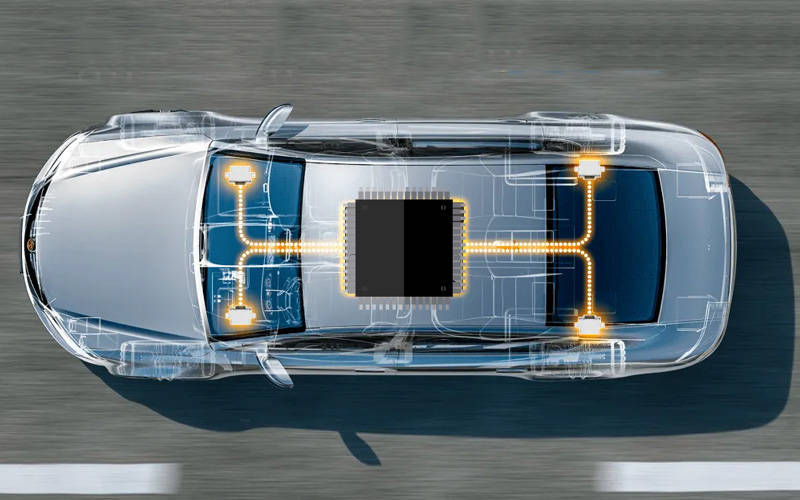According to statistics, there are about 300 companies in China that develop automotive chip products. In the fields of intelligent cockpit, intelligent driving, and intelligent networking, a number of high-quality computing chips, communication chips, power chips, and control chip companies have emerged. From the perspective of the industrial chain, China has made rapid progress in automotive chip design, packaging and testing.
However, China's chip industry is also facing a series of problems. Abroad, Europe, the United States, Japan, South Korea and other countries have issued a series of policies in the field of semiconductors, which have strengthened the protection and promotion of the development of the local semiconductor industry, and also increased the pressure on Chinese semiconductor companies.
Automotive chips are an indispensable core device for modern automobiles, and with the development of intelligent and networked automobiles, the average number of chips used in a single vehicle ranges from a few hundred to more than a thousand. According to statistics, there are currently around 1,000 chips used in automobiles, and it is expected that the number of chips used in each vehicle will reach 3,000 in the future. This growth trend has brought a huge market space for the automotive chip industry.
The rapid development of new energy vehicles is one of the biggest drivers of the automotive chip industry. With the global pursuit of the "dual carbon" goal and the acceleration of energy transition, the market penetration rate of new energy vehicles continues to rise. According to data from the China Association of Automobile Manufacturers, China's new energy vehicle sales have exceeded 9.4 million units, with a market share of more than 30%. This trend not only promotes the technological innovation of key components such as batteries and motors, but also puts forward higher requirements for automotive chips. The intelligent and networked characteristics of new energy vehicles have led to a surge in the number of chips required for a single vehicle, jumping from the traditional hundreds to thousands, bringing unprecedented market opportunities to the automotive chip industry.
At the same time, the rise of smart cars has also injected new vitality into the automotive chip industry. The realization of functions such as autonomous driving, assisted driving, and intelligent cockpit is inseparable from high-performance and high-reliability automotive chips. With the continuous improvement of consumers' demand for intelligent and connected vehicles, the market space of the automotive chip industry will be further expanded.

Figure: Opportunities and challenges of automotive chips (Source: Sohu.com)
However, the development of the automotive chip industry has not been smooth sailing. International political factors such as technical blockade and export control have brought huge challenges to China's automotive chip industry. United States and other developed countries have a leading position in the field of automotive chips, restricting the development of Chinese enterprises and institutions through technological blockade and export control. In the face of this challenge, China's automotive chip industry needs to strengthen its independent innovation capacity, master core key technologies, and break the international technology blockade.
In addition, the tight supply chain and insufficient production capacity are also important problems facing the current automotive chip industry. The tight supply of global automotive chips has led to frequent problems such as production blockages and delivery delays for car companies. In order to solve this problem, China's automotive chip industry needs to strengthen supply chain management and capacity construction, and improve the resilience and stability of the supply chain. At the same time, strengthening communication and collaboration with international partners is also one of the effective ways to alleviate supply chain tensions.
Despite the challenges, the next two years are seen as a window period for the development of domestic automotive chips. The support of the government and industry associations, the growth of market demand, and the breakthrough of technological innovation have provided impetus for the development of the industry. Domestic automotive chip companies need to seize the opportunity to enhance their competitiveness and achieve technological self-reliance and self-improvement through measures such as policy support, industrial ecological construction, standard improvement, talent training and market-oriented integration. At the same time, as the cornerstone of the development of intelligent new energy vehicles, automotive chips are becoming increasingly important, providing a major opportunity for industrial development to change lanes and overtake.






